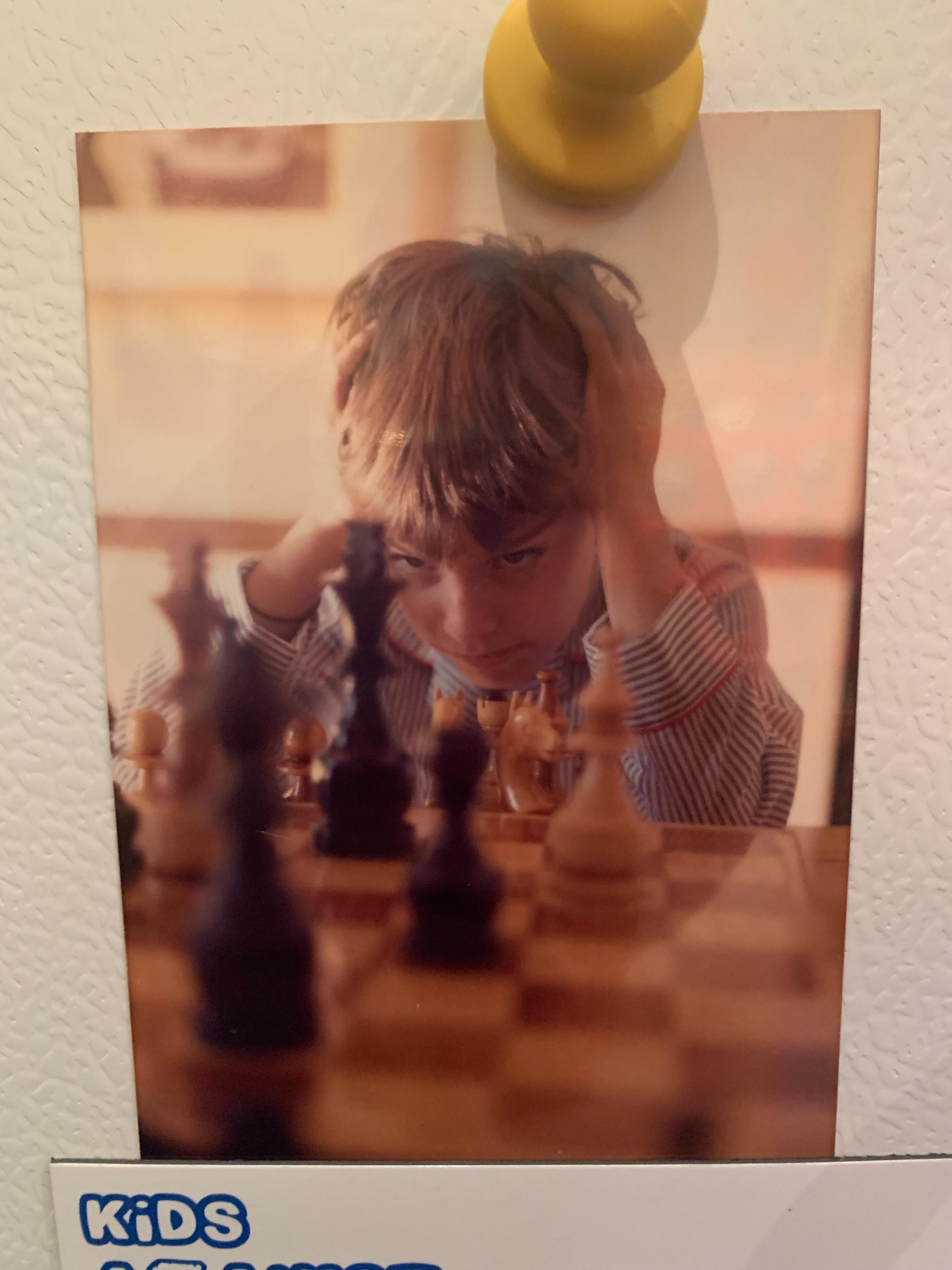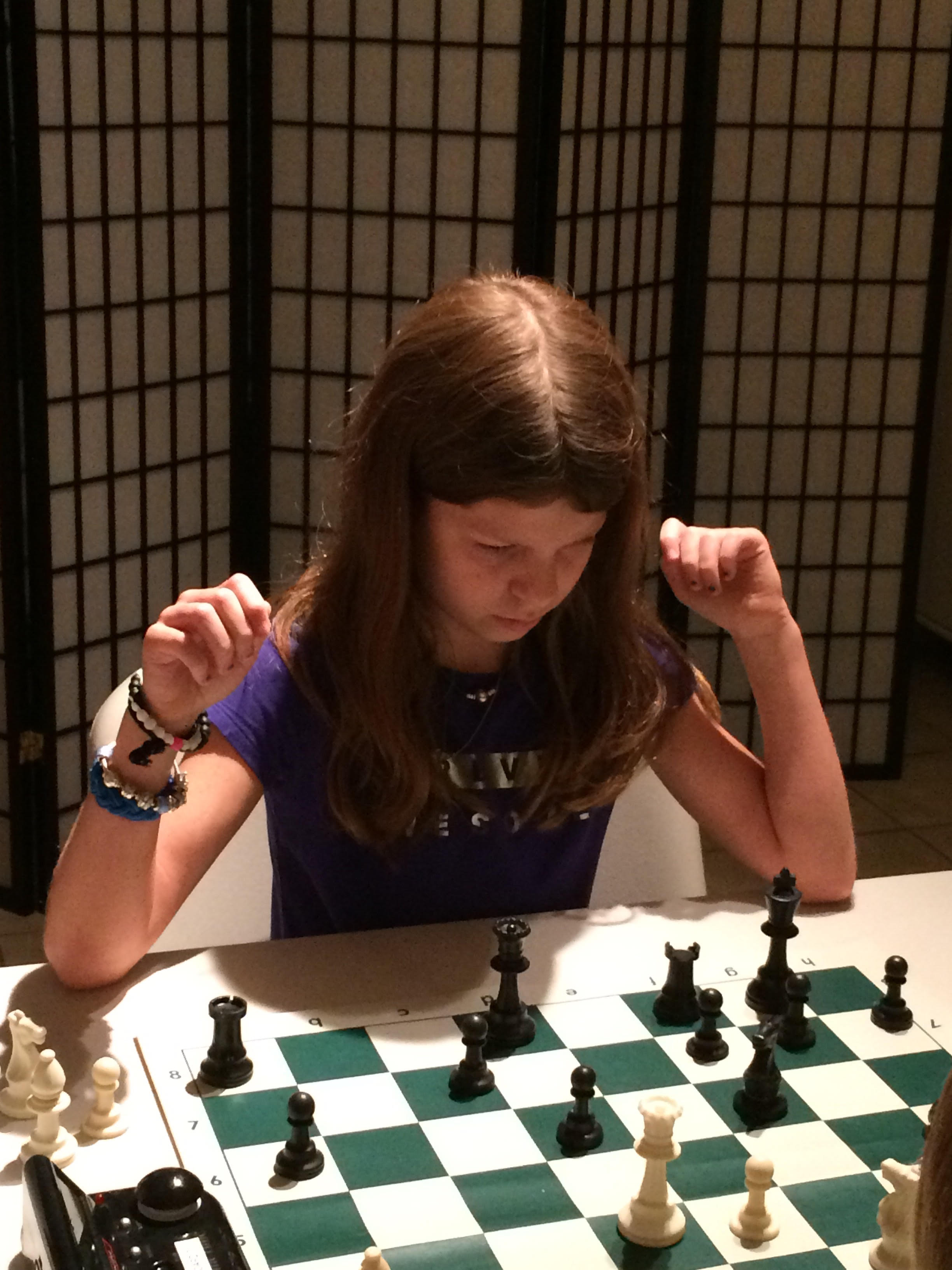The Game and I
News Based on facts, either observed and verified directly by the reporter, or reported and verified from knowledgeable sources.
How chess enriches life

Good morning! Today is Friday, December 31 (Happy New Year’s Eve!). You are reading today’s section of Examiner+, a digital newsmagazine serving Westchester, Putnam, and the surrounding Hudson Valley.
A message from our Publisher:
Quick little prologue to my column this morning. In one of my introductory messages a couple weeks ago, I mentioned a forthcoming chess piece. Soon after publication, I received a direct message over Twitter from former New York State Assemblyman (and Examiner+ subscriber) David Buchwald, challenging me to a game. He pointed out how he hasn’t played much in awhile but was seeking a competitor other than his six-year-old. Well, in this battle of news publisher versus newsmaker, I’m humbled to report the press came up short in our debut clash. As my essay mentions, chess provides a great bridge between all cross sections of society. But, at least in our first battle, it appears the assemblyman would be better off sharpening his skills against a six-year-old.
Best, Adam
Need to subscribe — or upgrade your Examiner+ subscription? Details here.
Join now and take advantage of our special holiday rate of just $39 for a whole year:
Today’s Examiner+ is sponsored by Greca Mediterranean Kitchen+ Bar in White Plains.


As he scurried down the stairs, the little Long Island boy couldn’t possibly forecast the significance of the ancient game his father was about to deliver into his life with an introductory lesson.
Donning his blue and white pajamas on a lazy weekend morning, too young to care about his brown mop bed head, he reaches for the humble white pawn, pushing it two squares forward after some basic instruction. He listens and learns as dad explains how to maneuver each piece.
On the sunny school-less morning, driveway basketball or any outdoor neighborhood activity screamed for him like an insistent toddler. But the usual routine would have to wait. A relationship with chess — one that would blossom into an obsession nearly four decades later — was about to be born.
I was seven years old that morning, digesting the moves of the game, but it wasn’t until last year, about eight months deep into the pandemic, that I became entirely transfixed by this genuinely ingenious human invention.
“The game of chess is not merely an idle amusement,” Ben Franklin once observed. “Several very valuable qualities of the mind, useful in the course of human life, are to be acquired or strengthened by it. Life is a kind of chess, in which we have often points to gain, and competitors or adversaries to contend with.”
Despite chess being the game of choice of our most lovable founding father, it’s a hobby that transcends social class and race, and even language in a way that few other activities can claim. And, more to the point, I certainly haven’t been alone in Westchester or the wider world with my post-pandemic obsession with Ben’s grand game.
While chess and its precursor has been around for about 1,500 years, likely invented in India, it was COVID and, well, Netflix, that combined to supercharge chess’s surging popularity.
The ratings bonanza that was Netflix’s The Queen’s Gambit, together with the virus’s quarantine-era demand for new hobbies, led to chessboard sales jumping 87 percent in the United States alone, according to Nov. of 2020 research reported by the NPD Group, a marketing research firm.
But to Franklin’s beautifully articulated point, chess provides us with much more than a game to pass the time. It’s an endeavor that links generations and requires us to use critical thinking skills that are pivotal to achieving success in our personal and professional lives.
Today’s supporting sponsors are the Town of Yorktown…

…and the Peekskill Business Improvement District.

Growing up in Hungary, my father remembers not just playing with his father but also visiting a friendly downstairs neighbor who taught him some especially important tricks of the chess trade. As I relay tips to my two daughters today, I think about the straight line that can be drawn from our Mt. Kisco dining room table to the card table of an elderly gentleman in a second-floor Budapest apartment seven decades ago and 4,300 miles away.
In fact, in 2017, when my older daughter Maddie was 10, I enrolled her into a small chess tournament in White Plains, a competition organized by Renata Natarajan, founder of the TurtleStrat chess education organization and the former National Junior Chess Champion of (coincidentally enough) Hungary. Maddie was the only girl in attendance.

Historically, the game has been dominated by men, and too often suffered from a chauvinistic subculture, as illustrated in The Queen’s Gambit. So I was particularly proud when Maddie beat the boys to capture championship hardware in the tournament that evening. Natarajan shot me a little wink after the awards ceremony. I think it’s safe to say she was happy to see a girl win first place.
In giving my younger daughter Mia a few bedtime chess lessons on the iPad in more recent times, I’m struck by the game’s unique ability to teach children how to plan ahead. No game comes close to chess in its parallels to the ways of the world. I might want to move my white knight from f-3 to g-5. But first I have to protect against a black queen attack of my knight by pushing my d-2 pawn to d-3. This way I open up an attack lane for my queen.
For the uninitiated, all the mumbo jumbo lingo might make the description sound complicated. Yet, believe it or not, this is a very basic concept and inner monologue almost any child can learn in a first lesson. Really.
When I see our daughters (sometimes!) exhibit maturity beyond their years, I sense that quality derives from a general chess-like mentality of thinking before acting. I might want to complain about the length of the car ride but mom and dad are taking me on a trip and I want to avoid irritating them — especially with dessert pending. This isn’t to say we should live our lives guided only by Spock-like, soulless calculation. Or that Maddie and Mia don’t have more than their fair share of moments! It’s to say chess shows us the value of prudence and forecasting when making decisions.
There is an intuitive aspect of chess too, in reading your opponent, as you gain experience. The Michael Jordans of chess, like a Magnus Carlsen today or a Bobby Fisher in yesteryear, would surely tell you they mastered the art, not just the science.
And while it’s true that we learn more from our failures than our successes, blunders come with consequence, sometimes serious consequence, and chess teaches you how a series of smart decisions followed by one bad one can prove fatal. Chess requires you to plan ahead, and consider the other player’s motivations, with each decision you make. We might all agree we learn from blunders but it’s still best to avoid them as best we can.
I know how close I was to derailing my entire newspaper career with one errant decision in 2002, leaving a good job for an awful one. Finding my way back wasn’t fated into the stars. I avoided checkmate and have earned something of a come-from-behind lead. But it was no guarantee and chess teaches us that while we learn from our failures, bad choices can cost us dearly.
Chess also teaches us to avoid making overly risky bets, how hard work delivers, and, at least in the case of my sixth-grade class, what it looks like to see an authority figure delivering on a promise to kids. I remember my sixth-grade elementary school teacher, Mr. Conti, proclaiming any student who beat him in chess would receive enough “Conti Bucks” (we had our own monetary system) to pay for weeks of days off from school, recess all day — seriously. Of course, Mr. Conti reasoned, no student would be good enough to beat him, given his advanced skills.
Well, my friends Jeff Ahn and Jason Lewis — (who I had pooled Conti Bucks with early that school year) — had something to say about that. By spring, those guys (and a few others) could beat Conti routinely, and we spent weeks playing stickball during the school day as other students labored on academics inside the classroom.
Best May and June of our school lives! In retrospect, all these years later, I do wonder whether the very intentional Mr. Conti was really caught off guard by losing. We learned a lot that year, in unorthodox ways, and the chess learning journey Conti created was no exception.
My personal obsession, which started last November, began to bloom after I discovered the chess.com app for my iPad. I no longer had to beg Maddie to play with dear old dad! Games against real-life opponents (or the computer) were available at the click of a button at any moment of the day.
Over about the same timespan, Examiner Media’s business has been reimagined and modernized in ways I’d never previously conceived. And I don’t think it’s any coincidence.
Since last fall, as of this writing, I’ve played 2,981 games of chess, each 20 minutes, against people from around the globe. While I remain at an intermediate skill level at best, my rank hovers between the 60th and 70th percentile, significantly better than where I started last year.
The discipline that comes with having to maintain total concentration to evaluate your best available move with each and every decision provides a pathway to superior thinking in all areas of life, business most definitely included.
I felt like all media outlets had a credibility problem so I discovered and got Examiner Media working with The Trust Project. I felt like we were facing a future revenue problem so I located Substack Local. I concluded we had a knowledge deficit so I found the Facebook Accelerator Program.
It’s not to say chess is a prerequisite to using strategic thinking skills, or that I couldn’t have made these choices if not for my post-pandemic obsession. But it has undoubtedly sharpened my mind and enhanced my ability to see a few additional moves ahead.
And as I reflect back on that morning four decades ago, learning chess from my dad, knowing the tradition has been passed on to my children, I feel confident in saying you wouldn’t be reading this column in this publication today if not for lessons learned from the ancient, magical, educational game of games.
Knowing the joy of chess, I feel compelled to evangelize on its behalf. So go get that chess.com app on your device right now! My username is @examinernews and I welcome all challengers. See you there.
Adam Stone is the Publisher of Examiner Media. When not running local news outlets or chauffeuring his children, Stone can be found on the tennis courts at Mt. Kisco’s Leonard Park, on his Ipad playing chess, or on the floor cleaning after his two dogs.
We hope you’ve enjoyed today’s section of Examiner+. What did you think? We love honest feedback. Tell us: examinerplus@theexaminernews.com

Examiner Media – Keeping you informed with professionally-reported local news, features, and sports coverage.
